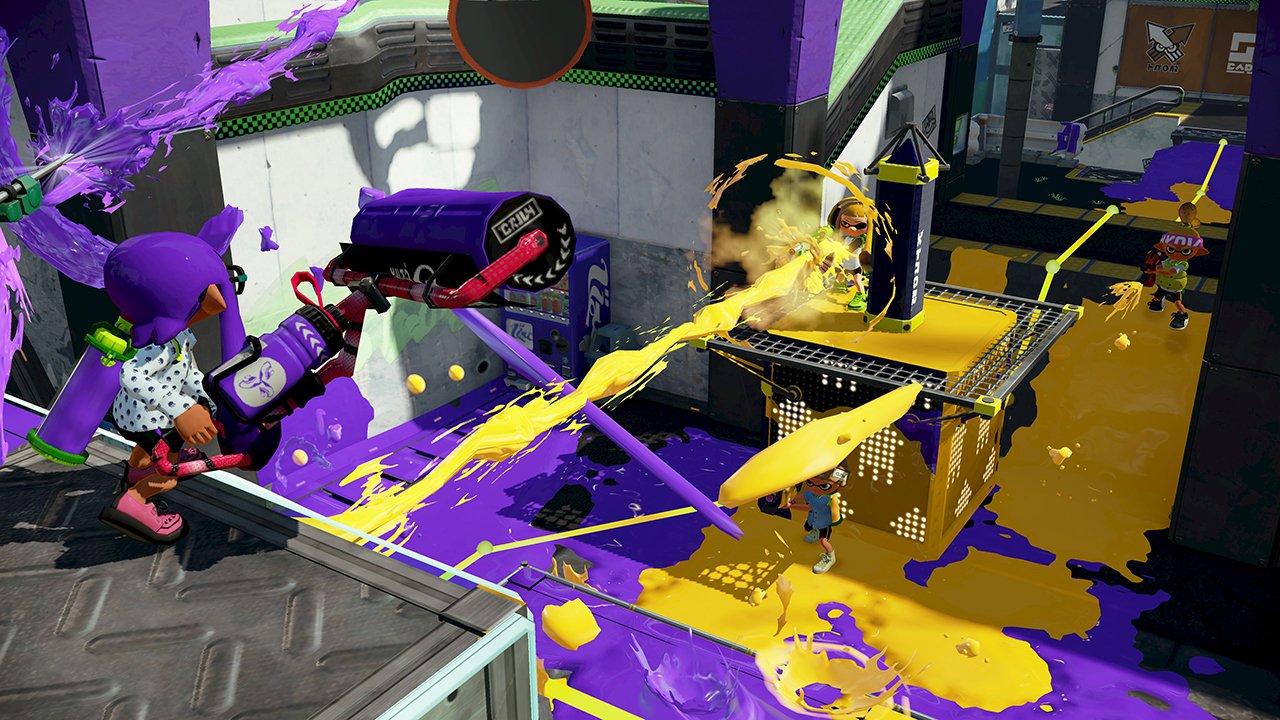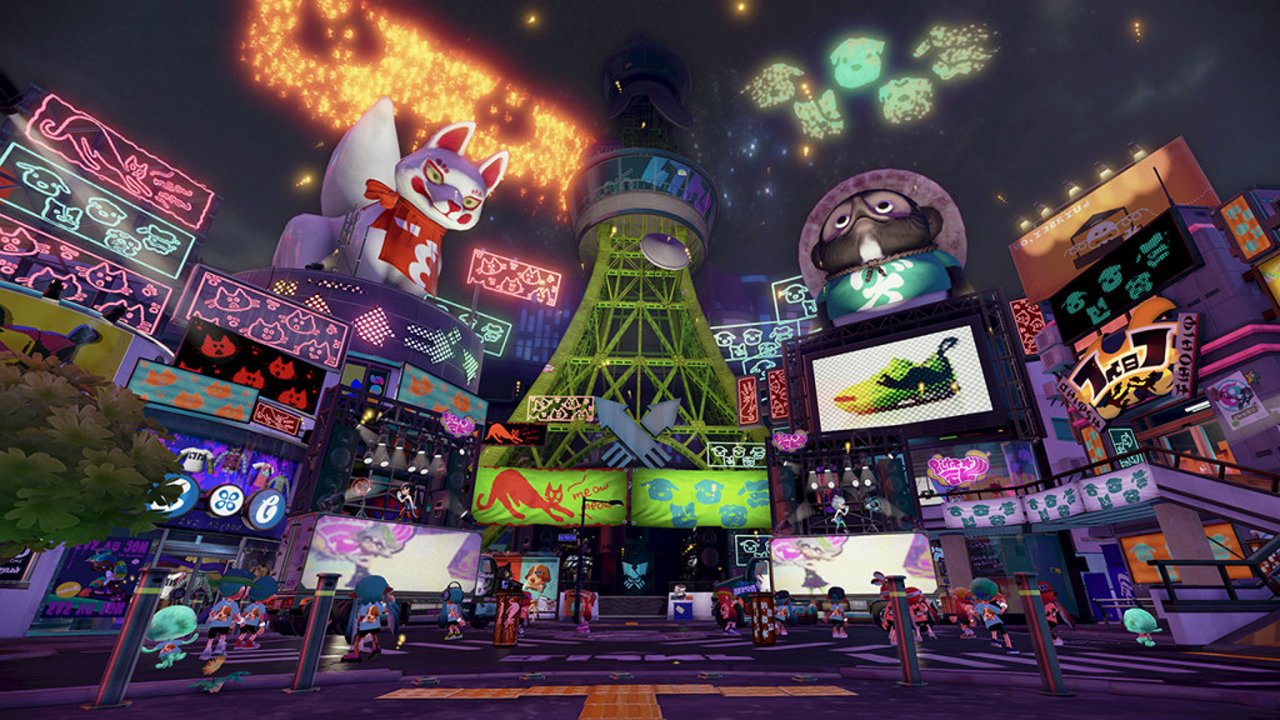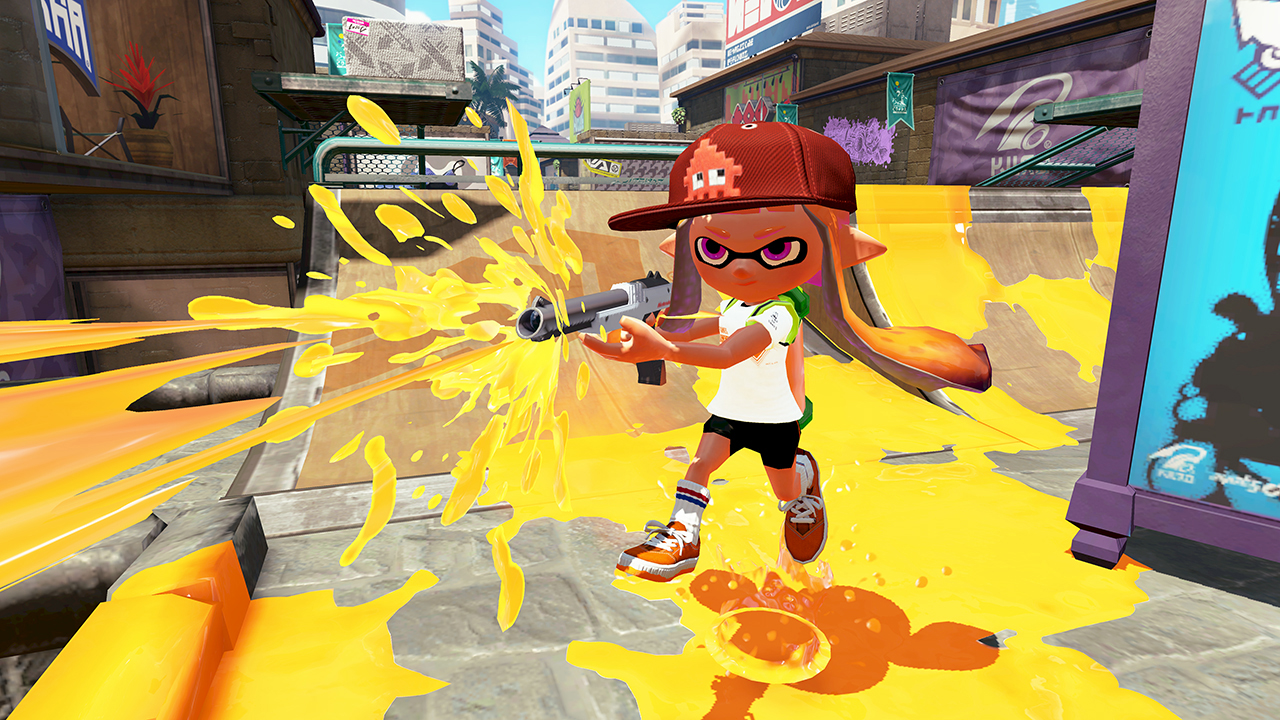All the content in the world can't fix Splatoon's biggest setbacks
I wanted to like Splatoon so much more than I actually did. In the review I wrote back in May, I remarked that Splatoon is a fantastic shooter marred by a content problem - namely, there just isn't enough of it. With a brief single-player campaign and only a handful of multiplayer maps, Splatoon grew repetitive too quickly, and that feeling was exacerbated by the asinine way it managed maps. I walked away from Splatoon disappointed in what had shipped on the disc, but hopeful that Nintendo's plans to continue supporting it over the summer would fix my biggest issues.
It's been four months since I wrote my review, and I've been dipping back into Splatoon every couple of weeks or so to check on its progress. While it's a bit hyperbolic to say that the overall experience is vastly different than it was when it launched, Nintendo has made strides to keep it fresh with tons of new guns, new maps, and new modes to play. That's all great, but it hardly matters when Splatoon still limits players to two maps at a time per mode, creating a bottleneck that's even more noticeable now than it was at launch.

Normally, Splatoon limits players to two multiplayer maps every four hours. In theory, this makes sense. Splatoon didn't have a ton of content when it launched, and the Wii U install base isn't very large compared to the PS4 and Xbox One, so limiting players into a small set of matches ensures that there are always enough people for a full game. In practice, it just means that I get tired of the chosen maps that much faster. Splatoon randomly chooses from the two available maps, and will often pick the same map over and over. Ranked matches offer a different set of two maps, but they’re not immune to the repetition found in normal online play. This limitation was frustrating when it first launched, and it's still frustrating four months later.
The hilarious part is that Splatoon has has actually fixed this problem - but only if you play during special bi-weekly-ish Splatfest events. It's the only time Splatoon increases the amount of maps in the rotation, and it completely boggles my mind why Nintendo limits this much-improved experience to these events.

Splatfest events are simple, weekend-long tournaments that have players choosing between options like cats or dogs, and then competing to see which team comes out on top. The entire game transforms for a whole weekend into a giant party, as Miiverse posts pepper the main plaza with drawings of their team of choice and billboards emblazoned with the team's mascots cover the city walls. It's a largely superficial change, but it's really cool to see the Splatoon community get into the spirit of the event, to see everyone wearing their special Splatfest T-Shirts while they spray gallons of paint on the battlefield, all in the name of which school subject or summer activity is best.
The most important change Splatfest brings is that it increases the total number of maps in a given rotation to three, and even this small bump greatly improves the multiplayer's overall flow and variety. There's no getting around playing repeat maps every now and then, but it's far less frequent during Splatfests than it is during normal play. It makes no sense that Splatoon only increases the rotation during these special events - Splatoon now has the available content to support another map, but for whatever reason, the developers have decided not to support it outside of Splatfest.

It's such a shame that a single roadblock can ruin an otherwise positive experience, especially when Nintendo continues to add new content to the mix. Within days of its release, Splatoon unlocked a new map and NES Zapper-inspired paint shooter, and later updates offered game-balancing tweaks and new weapons (like the recently-added gatling gun and paint bucket). Splatoon now contains a dozen multiplayer arenas, compared to the paltry list of five it launched with, and players can now compete in private matches with their friends, as well as a wider variety of ranked battles. Many of these additions have changed how people play, and all of them have been made available for free. But none of that matters when you turn your console off from the boredom caused by playing the same map seven times in a row.
Sign up to the GamesRadar+ Newsletter
Weekly digests, tales from the communities you love, and more
I do have to hand it to Nintendo for keeping Splatoon feeling fresh months after release, and being able to do it without charging players for access to its additional content. So while I'm far more keen on Splatoon now than I was when it first launched, I can't shake the feeling that the colorful shooter could have been so much better if it weren't bottlenecked by a frustratingly limited map rotation. The fact that Nintendo has a solution for it but doesn't make it more widely available is perhaps the most disappointing part about an otherwise fantastic game.



